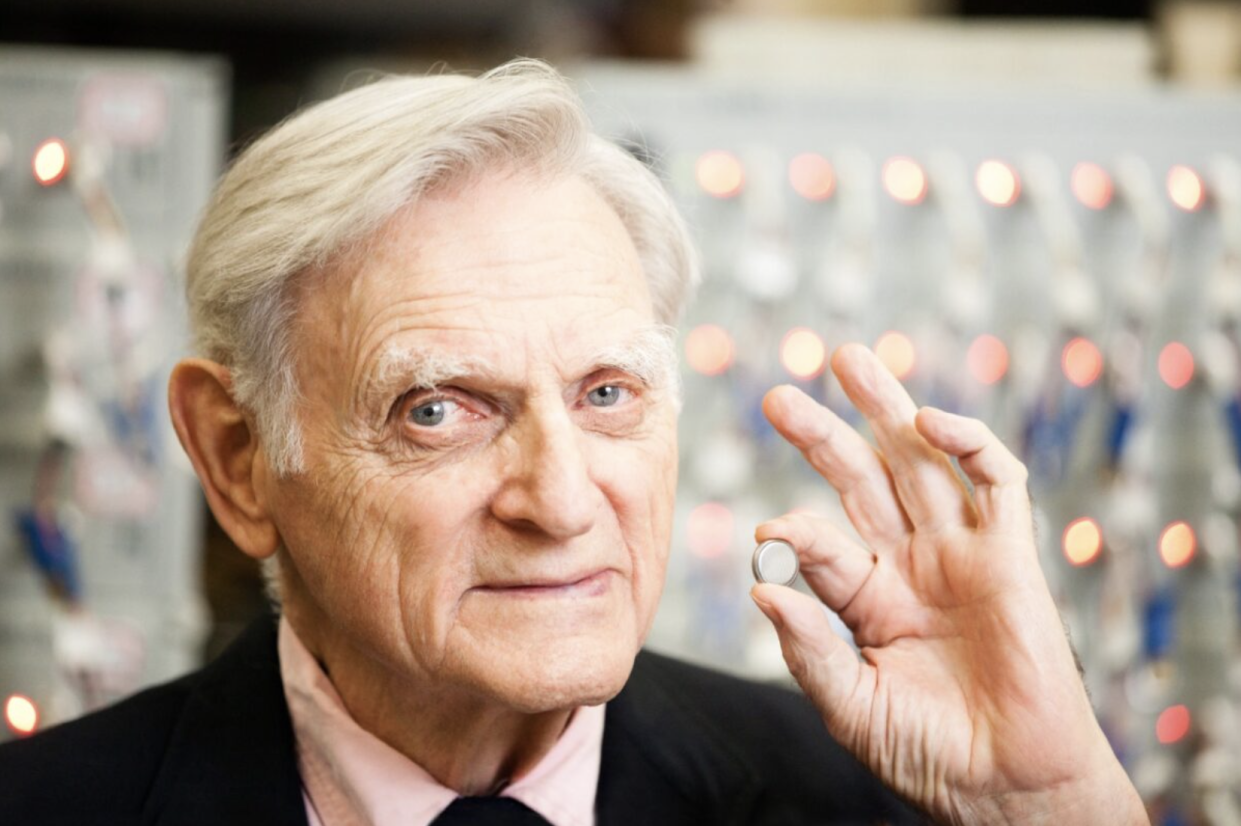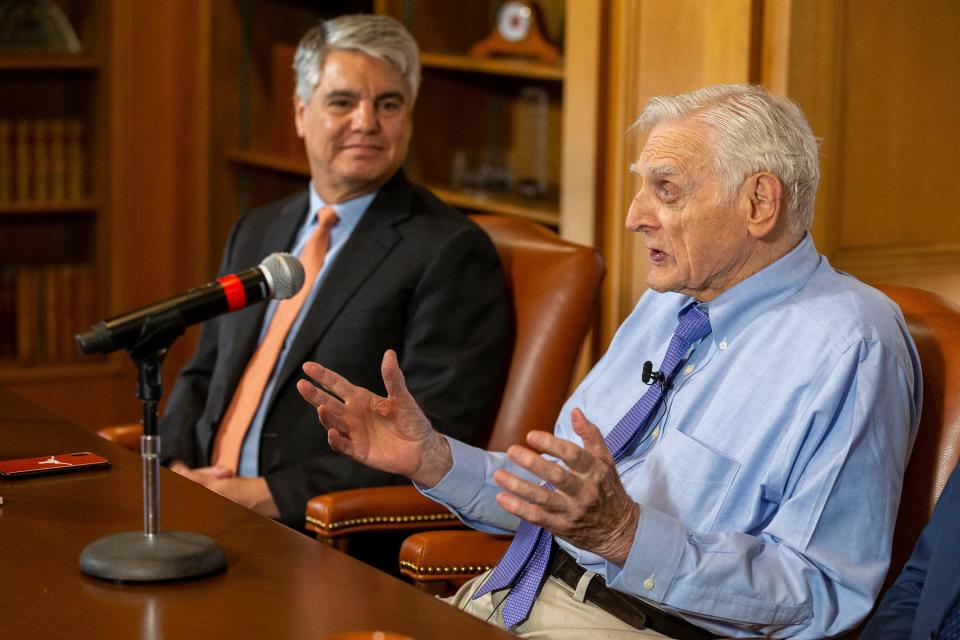UT professor John Goodenough, Nobel Prize-winning battery developer, dies at 100

- Oops!Something went wrong.Please try again later.
- Oops!Something went wrong.Please try again later.
John Goodenough, a Nobel Prize-winning University of Texas professor who developed the lithium-ion battery, died Sunday at 100.
Goodenough won the Nobel Prize in chemistry in 2019 for his work developing the battery, making him the oldest person to become a Nobel laureate at 97. He shared the award with M. Stanley Whittingham of Binghamton University in New York and Akira Yoshino of Meijo University in Japan.
“John’s legacy as a brilliant scientist is immeasurable — his discoveries improved the lives of billions of people around the world,” UT President Jay Hartzell said in a statement. “He was a leader at the cutting edge of scientific research throughout the many decades of his career, and he never ceased searching for innovative energy-storage solutions."
Goodenough worked as a faculty member in UT's Cockrell School of Engineering for 37 years, where he researched battery materials and "the next generation of rechargeable batteries." In a news release Monday, UT praised Goodenough as a "dedicated public servant, a sought-after mentor and a brilliant yet humble inventor."
More: John Goodenough, University of Texas' Nobel laureate, stays positive
“Not only was John a tremendous researcher, he was also a beloved and highly regarded teacher,” UT Provost Sharon Wood said. “He took great pride in being a mentor to many graduate students and faculty members who benefitted from his wisdom and encouragement. The world has lost an incredible mind and generous spirit."
Goodenough was born in 1922 in Germany but grew up in the northeastern U.S. and went to school in Massachusetts. He earned a bachelor’s degree in mathematics from Yale University in 1944 and completed a master’s in 1951 and a doctorate in 1952, both in physics, at the University of Chicago.
He worked for 24 years at the Massachusetts Institute of Technology, where he laid the groundwork for the development of random-access memory for the computer, before becoming a professor and head of the Inorganic Chemistry Laboratory at the University of Oxford.
At Oxford, he developed lithium-ion rechargeable batteries, which are used to power tools, mobile phones, laptops, tablets and other wireless devices, as well as electric and hybrid vehicles. In 1986, he came to UT, where he worked to "develop the next battery breakthrough and educate the next battery innovators."

“John’s seven decades of dedication to science and technology dramatically altered our lifestyle, and it was truly a privilege to get to work with him for so many years,” said Ram Manthiram, a UT engineering professor who delivered the Nobel lecture on Goodenough's behalf. “John was one of the greatest minds of our time and is an inspiration."
From the archives: Texas inventor John Goodenough on verge of revolution in battery tech
In addition to the Nobel Prize, Goodenough received multiple awards throughout his lifetime, including the National Medal of Science, the Japan Prize, the Charles Stark Draper Prize, the Benjamin Franklin Medal, the Enrico Fermi Award, the Robert A. Welch Award and the Copley Medal.
The engineering professor gave several of his monetary prizes to UT to support engineering graduate students and researchers. He established the John B. and Irene W. Goodenough Endowed Research Fund in Engineering in 2006 and the Irene W. Goodenough Endowed Presidential Scholarship in Nursing in 2016.
Goodenough was defined not just by his research and generosity, but also by his "quick wit and infectious laugh," which could be heard reverberating through UT's engineering buildings, according to the university.
“John was simply an amazing person — a truly great researcher, teacher, mentor and innovator,” said Roger Bonnecaze, dean of the Cockrell School of Engineering. “His joy and care in all he did, and that remarkable laugh, were infectious and inspiring."
He was married to Irene Goodenough for more than 70 years until her death in 2016. He is survived by his half sister, Ursula Goodenough, and a half brother, Daniel Goodenough.
This article originally appeared on Austin American-Statesman: John Goodenough, Nobel Prize-winning battery developer, dies at 100

